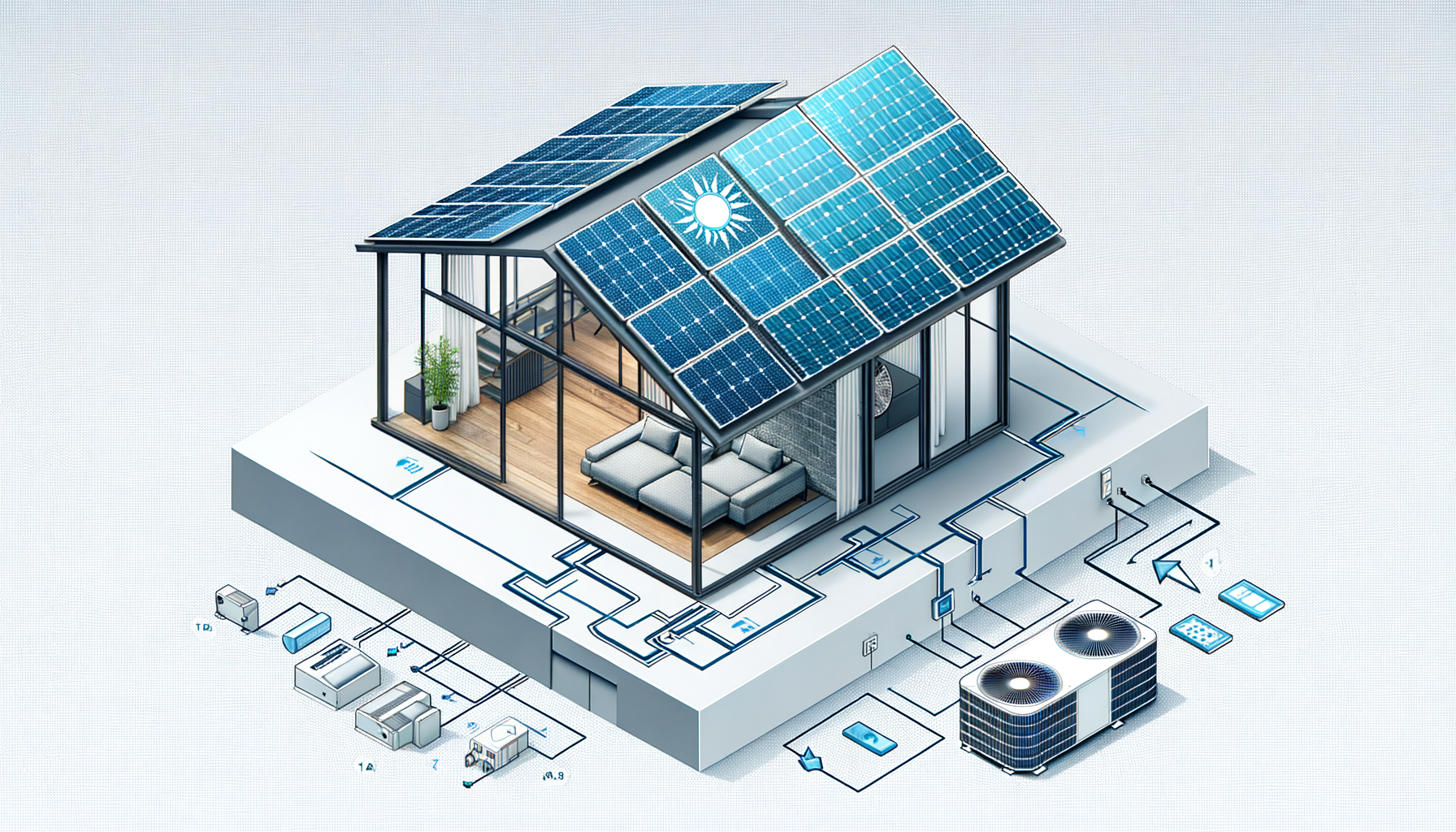Harnessing the Sun: A Dedicated Solar Unit for Your AC

Updated 4 months ago
Harnessing the Sun: A Dedicated Solar Unit for Your AC
In the quest for a more sustainable and cost-effective home, solar power has emerged as a go-to for many homeowners. Among the myriad ways to utilize solar energy, powering an air conditioning (AC) unit solely with a dedicated solar setup is an excellent method to reduce your carbon footprint while enjoying cool air during those scorching summer months.
The Basics of Solar-Powered Air Conditioning
Solar-powered air conditioning refers to using solar energy, either via photovoltaic (PV) panels or solar thermal systems, to operate your AC unit. This strategy can range from supplementing your home's power needs to a complete off-grid AC solution, depending on your setup and energy requirements.
How It Works
The most common setup for solar-powered AC involves PV panels converting sunlight into electricity. This electricity is either used instantly by the AC unit or stored in batteries for later use. A properly sized solar panel system can generate enough power to run your air conditioning, making it a viable alternative to traditional grid power.
Benefits of Solar AC Units
- Reduced Energy Bills: Solar power comes directly from the sun, so once you've covered the installation costs, your energy bills will see a significant decrease.
- Eco-Friendly: You're reducing your reliance on fossil fuels and lowering your greenhouse gas emissions.
- Energy Independence: With solar panels, you're not entirely dependent on the grid, providing a measure of energy security.
- Increased Home Value: Homes with solar installations are often valued higher and can sell faster on the property market.
Estimating Your Solar AC Unit Installation Cost
Planning Your Solar Unit for AC
Before diving into the world of solar AC, it's essential to conduct a thoughtful assessment of your situation. Consider the size of your AC unit, the climate you live in, and your home's orientation towards the sun.
AC Power Consumption
Start by figuring out how much power your AC unit consumes. A typical central air conditioner might use around 3,500 watts per hour, so you'll need a solar panel system that can produce that amount consistently during operating hours.
Solar Panel Efficiency
The efficiency of solar panels can vary widely. When selecting panels for powering your AC system, aim for high-efficiency models to maximize the power output from the available space on your roof.
Battery Storage
If you want your air conditioning to run when it's not sunny, including during the night or on cloudy days, you'll need a battery system to store excess power generated during the day.
Incentives and Rebates
Research any available tax credits, rebates, or incentives in your area that could reduce the initial cost of your solar AC system.
Solar Panel Installation and Maintenance
Once you've calculated your needs and made a plan, the installation process can begin. Only work with licensed and insured solar installers to ensure your system is put in place correctly and safely.
Regular maintenance is minimal, typically involving keeping the panels clean and ensuring they aren't shaded by vegetation growth.
The Cost-Benefit Analysis of Solar AC Units
To decide whether a solar-powered AC is right for you, compare the upfront costs with potential savings. Remember to factor in energy cost savings, increased home value, and possible tax incentives when doing your cost-benefit analysis.
Transitioning to a Solar-Powered AC
Transitioning to a solar-powered AC system is not a decision to make lightly but armed with the right information and a solid plan, it can be a fantastic investment.
Step-by-Step Installation Guide
- Conduct a Home Energy Audit: Understand your home's energy needs and how much power your AC unit requires.
- Choose the Right Components: Select high-quality solar panels, a compatible inverter, and adequate battery storage.
- Professional Installation: Hire professionals to install and configure your system properly.
- Monitor and Maintain: Keep an eye on your system's performance and ensure it's well-maintained for optimal operation.
While the process may seem daunting, it's a path towards a more sustainable and self-sufficient home.
Long-Term Benefits and Considerations
- Longevity: Solar panels come with long warranties, often 25 years, making them a durable investment.
- Smart Integration: Pairing your solar system with smart home technology can lead to even greater efficiency and ease of use.
- Community Impact: By choosing solar power, you're contributing to the larger shift towards renewable energy and demonstrating leadership in your community.
FAQs About Solar-Powered AC Units
How much will I save on my electricity bills?
Savings can be substantial over time, but they depend on your system's size, your energy usage, and local electricity rates.
Does solar AC work at night?
With battery storage, your AC can run at night using the energy gathered during the day.
Can I still use grid power with my solar AC system?
Yes, grid-tied systems allow you to use solar when available and revert to the grid as needed.
Transitioning to a solar-powered AC system is more than just installing panels; it's a step towards a greener lifestyle and a long-term investment that pays dividends both financially and environmentally.
Once you're ready to take the plunge into a more sustainable cooling system, start by calculating the potential costs and savings. With expert guidance and a tailored solar AC unit, you'll be enjoying the benefits of clean, efficient air conditioning in no time.




